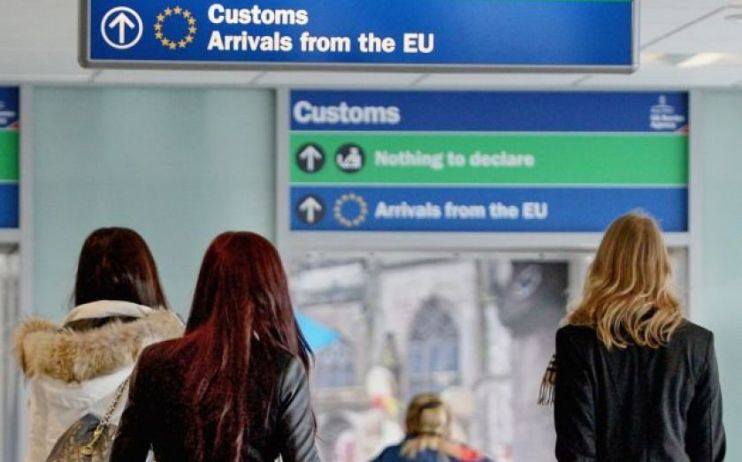The Tories should be the natural party of immigration

For many years, the Tory party has had an obsession with immigration – and, more to the point, cutting it.
Thanks to David Cameron’s misguided pledge to bring net migration down to the “tens of thousands”, the party has thrown both economic evidence and its core philosophy out the window in pursuit of that unreachable target.
This has exacerbated the Conservatives’ image problem. At best, they are viewed as simply tolerating modern Britain; at worst as being uncomfortable, even feeling resentful, with our country today.
If the Tory party still wants to be a force for change in 20 years’ time, it must reinvent itself as a positive, forward-thinking party that embraces the market economy, free enterprise, and individual liberty.
And one of the first priorities should be agreeing a coherent, unambiguous position on immigration.
Simply put, the Conservatives must become proud champions of the economic and cultural benefits that immigration brings.
In recent years, as record numbers of immigrants have come to the UK, record numbers of British people have also found employment. In 2016/17, the average adult migrant from the European Economic Area (EEA) contributed approximately £2,300 more to public finances than the average adult currently living in the UK.
EEA migrants typically incur less public spending than natives, while there is additional evidence to suggest that the average immigrant is a net contributor to UK public finances.
Immigrants are also typically more entrepreneurial than native Brits.
In 2017, 12.9 per cent of immigrants were early-stage entrepreneurs, compared to 8.2 per cent among the UK-born population. Almost half of the UK’s fastest-growing businesses have at least one foreign-born founder.
When it comes to unicorn startups, it rises to nine in 14. Companies that Britons use day-to-day, from Deliveroo and Just Eat to Monzo, TransferWise, and Revolut, boast migrant founders.
These aspirational success stories are exactly what the Tories should be promoting, not looking to limit.
Nor is this politically infeasible. In fact, there is electoral capital to be seized by embracing immigration, especially by deepening ties between Canada, Australia, New Zealand, and the UK.
CANZUK International’s polling of 13,600 people across all four countries found that support for freedom of movement between these nations stood at 68 per cent in the UK, 76 per cent in Canada, 73 per cent in Australia, and 82 per cent in New Zealand.
Such popularity for a single policy represents a door that Boris Johnson would be mad not to bang open.
Provided we eventually do manage to leave the EU, the Conservative government will have to pivot to championing free trade agreements. Free trade goes hand in hand with easing immigration rules – indeed, it is often a prerequisite for many countries.
In the early days of Theresa May’s premiership, for example, the Indian Prime Minister hinted that it would be hard for his country to strike a comprehensive free trade deal with the UK without some concessions on immigration laws. May was characteristically frosty. This was a mistake.
As the party of economic freedom, the Tories should be the standard-bearers for a new approach to immigration, extending to those around the world the freedom to come here, and – crucially – extending our own citizens’ freedom to live, work, and study elsewhere.
The previous Conservative position on immigration relied on the flawed assumption that central planning works. Instead, they should be making the case that individuals and businesses are best placed to make decisions for themselves in terms of the number of workers they need – much more so than a remote government bureaucrat.
Only with an open approach to immigration can we look ahead to the freer, more prosperous future that Brexit can provide. Indeed, without it, the Tory party’s idea of a “global Britain” is nothing but an illusion.
Main image credit: Getty